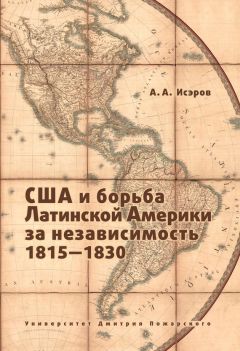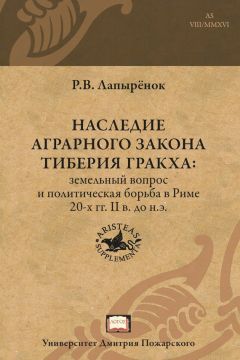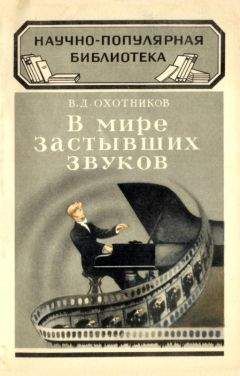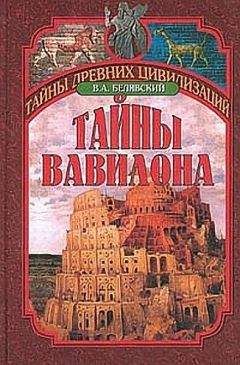Брендан Симмс - Европа. Борьба за господство
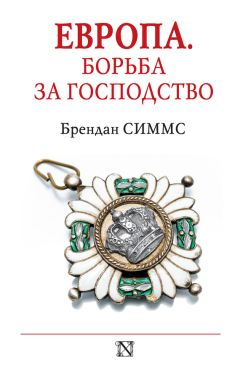
Все авторские права соблюдены. Напишите нам, если Вы не согласны.
Описание книги "Европа. Борьба за господство"
Описание и краткое содержание "Европа. Борьба за господство" читать бесплатно онлайн.
Европа, на землях которой шла многовековая борьба за господство…
Борьба оружия и дипломатии, культурного, религиозного, политического и экономического влияния…
Какие же страны одерживали верх в этой борьбе?
А какие были отброшены назад?
Каким государствам удалось подняться после разрушительных поражений?
А какие так и остались на обочине истории?
На эти и другие вопросы отвечает в своей книге Брендан Симмс – известный британский историк, профессор, директор Центра международных исследований Кембриджского университета.
281
Neuhaus, ‘Kronerwerb und Staatskonsolidierung’, in Liermann et al. (eds.), Italien und Preussen, pp. 27–37 (quotation p. 27).
282
Tim Blanning, ‘Frederick the Great’, in Brendan Simms and Karina Urbach (eds.), Die Rückkehr der ‘Grossen Männer’. Staatsmänner im Krieg – ein deutsch-britischer Vergleich 1740–1945 (Berlin and New York, 2010), pp. 11–20 (quotation p. 12).
283
Структура британского кабинета министров, отвечавшая за развитие соответствующего региона королевства. В 1782 г. Северный и Южный департаменты лишили функций надзора за внутренними делами и объединили в Форин офис – министерство иностранных дел. Примеч. ред.
284
Newcastle is quoted in Simms, Three victories, p. 288.
285
Peter Baumgart, ‘The annexation and integration of Silesia into the Prussian state of Frederick the Great’, in Mark Greengrass (ed.), Conquest and coalescence. The shaping of the state in Early Modern Europe (London, 1991), p. 160.
286
P. G. M. Dickson, Finance and government under Maria Theresia, 1740–1780, 2 vols. (Oxford, 1987), especially vol. I, pp. 1, 266–7 and 270–71.
287
Baruch Mevorach, ‘Die Interventionsbestrebungen in Europa zur Verhinderung der Vertreibung der Juden aus Böhmen und Mähren, 1744–1745’, Jahrbuch des Instituts für deutsche Geschichte, IX (1980), pp. 15–81 (quotations pp. 34 and 54).
288
The quotations are in Simms, Three victories, p. 289.
289
For the quotation see Rowen, The princes of Orange, p. 163.
290
Gyllenborg is quoted in John P. LeDonne, The Russian Empire and the world, 1700–1917. The geopolitics of expansion and containment (New York and Oxford, 1997), p. 35.
291
Francine-Dominique Liechtenhan, La Russie entre en Europe. Elisabeth Ière et la succession de l’Autriche (1740–1750) (Paris, 1997), especially pp. 46–9.
292
Имеются в виду события 1740–1741 гг.: по завещанию Анны Иоанновны регентом при малолетнем императоре Иване VI становился герцог Бирон; после низложения Бирона регентом стала мать Ивана Анна Леопольдовна. В конце 1741 г. состоялся военный переворот, и на трон взошла Елизавета. Примеч. ред.
293
Stainville is quoted in Rohan Butler, Choiseul. Vol. 1: Father and son, 1719–1754 (Oxford, 1980), p. 700. For French fears of the advancing Russians see ibid., pp. 724–6 (Sandwich quotation p. 724).
294
Thomas E. Kaiser, ‘The drama of Charles Edward Stuart, Jacobite propaganda, and French political protest, 1745–1750’, Eighteenth-Century Studies, 30 (1997), pp. 365–81.
295
Quoted in Hagen Schulze, The course of German nationalism. From Frederick the Great to Bismarck, 1763–1867 (Cambridge, 1990).
296
Quoted in T. C. W. Blanning, ‘The Bonapartes and Germany’, in Peter Baehr and Melvin Richter (eds.), Dictatorship in history and theory. Bonapartism, Caesarism, and totalitarianism (Cambridge and New York, 2004), p. 54.
297
Cited in Daniel A. Baugh, ‘Withdrawing from Europe: Anglo-French maritime geopolitics, 1750–1800’, International History Review, 20, 1 (1998), pp. 14–16.
298
Quoted in Externbrink, Friedrich der Grosse, Maria Theresia und das alte Reich. Deutschlandbild und Diplomatie Frankreichs im Siebenjährigen Krieg (Berlin, 2006), p. 316.
299
Quoted in L. Jay Oliva, Misalliance. A study of French policy in Russia during the Seven Years’ War (New York, 1964), p. 9.
300
Newcastle is cited in Reed Browning, The Duke of Newcastle (Cambridge, Mass., 1975), p. 182.
301
Reed Browning, ‘The Duke of Newcastle and the imperial election plan, 1749–1754’, Journal of British Studies, 7 (1967–68), pp. 28–47.
302
Richard L. Merritt, ‘The colonists discover America: attention patterns in the colonial press, 1735–1775’, William and Mary Quarterly, Third Series, XXI, 2 (April 1964), pp. 270–87, especially pp. 270–72.
303
Cited in Max Savelle, ‘The appearance of an American attitude toward external affairs’, American Historical Review, 52, 4 (1947), pp. 655–66 (quotation p. 660).
304
Quoted in Brendan Simms, Three victories and a defeat. The rise and fall of the first British Empire, 1714–1783 (London, 2007), p. 393.
305
Ibid., p. 391.
306
A. G. Olson, ‘The British government and colonial union, 1754’, William and Mary Quarterly, Third Series, XVII, 1 (1960), pp. 24–6 (quotation p. 26).
307
Fred Anderson, Crucible of war. The Seven Years War and the fate of empire in British North America, 1754–1766 (New York, 2000).
308
Frederick the Great, The history of my own times (1746). Posthumous works of Frederic II. King of Prussia (London, 1789), Vol. I, p. xx. I thank Ilya Berkovich for this reference.
309
Quoted in Tim Blanning, ‘Frederick the Great’, in Brendan Simms and Karina Urbach (eds.), Die Rückkehr der ‘Grossen Männer’. Staatsmänner im Krieg – ein deutsch-britischer Vergleich 1740–1945 (Berlin and New York, 2010), p. 18.
310
Frederick the Great, History of my own times, Vol. I, pp. 214–15.
311
Об изгнании аккадцев как “этнической чистке” см. Geoffrey Plank, An unsettled conquest. The British campaign against the peoples of Acadia (Philadelphia, 2001), pp. 140–57.
312
Quoted in H. M. Scott, The emergence of the eastern powers, 1756–1775 (Cambridge, 2001), p. 26.
313
Erich Everth, Die Öffentlichkeit in der Aussenpolitik von Karl V. bis Napoleon (Jena, 1931), pp. 355–60 (quotation p. 360).
314
D. A. Baugh, The global Seven Years War, 1754–1763. Britain and France in a great power contest (Harlow, 2011).
315
В отечественной историографии после С. М. Соловьева установилось обозначение «Клостерсевенское соглашение»: эту конвенцию подписали в Цевенском монастыре (клостере). Примеч. ред.
316
Helmut Neuhaus, ‘Das Problem der militärischen Exekutive in der spätphase des Alten Reiches’, in Johannes Kunisch (ed.), Staatsverfassung und Heeresverfassung in der europäischen Geschichte der Frühen Neuzeit (Berlin, 1986), pp. 297–346 (quotations pp. 297 and 299).
317
Philip Carter, ‘An “effeminate” or “efficient” nation? Masculinity and eighteenth century social documentary’, Textual Practice, 11 (1997), pp. 429–43 (quotation p. 429).
318
Matthew McCormack, ‘The new militia: war, politics and gender in 1750s Britain’, Gender & History, 19 (2007), pp. 483–500 (quotation p. 497).
319
Erica Charters, ‘The caring fiscal military state during the Seven Years War, 1756–1763’, Historical Journal, 52 (2009), pp. 921–41, especially pp. 937–40 (quotation p. 939).
320
H. M. Scott, ‘The decline of France and the transformation of the European states system, 1756–1792’, in Peter Krüger and Paul W. Schroeder (eds.), The transformation of European politics, 1763–1848. Episode or model in modern history? (Oxford, 1996), pp. 105–28 (Voltaire quotation p. 114).
321
John Shovlin, The political economy of virtue. Luxury, patriotism and the origins of the French Revolution (Ithaca and London, 2006), pp. 54–5.
322
Quoted in Bailey Stone, The genesis of the French Revolution. A global-historical interpretation (Cambridge, 1994), p. 55. See also T. C. W. Blanning, The French Revolutionary Wars, 1787–1802 (London, 1996).
323
Brendan Simms, ‘William Pitt the Elder. Strategic leadership at home and abroad during the great war for the empires (1756–1763)’, in Simms and Urbach (eds.), Die Rückkehr der ‘Grossen Männer’, pp. 29–48, especially pp. 32–4.
324
Brendan Simms, ‘Pitt and Hanover’, in Brendan Simms and Torsten Riotte (eds.), The Hanoverian dimension in British history, 1714–1837 (Cambridge, 2007), pp. 28–57 (quotation p. 55).
325
«Сомнения и вопросы» (фр.). Примеч. ред.
326
Gary Savage, ‘Favier’s heirs: the French Revolution and the secret du roi’, Historical Journal, 41 (1998), pp. 225–58.
327
Hamish Scott, ‘The Seven Years War and Europe’s ancien régime’, War in History, 18 (2011), pp. 419–55.
328
Quoted in Hugh Ragsdale, ‘Russian projects of conquest in the eighteenth century’, in Ragsdale (ed.), Imperial Russian foreign policy (Cambridge, 1993), p. 76.
329
Quoted in Externbrink, Friedrich der Grosse, p. 339.
330
О кризисе французской аристократии после Семилетней войны: William Doyle, Aristocracy and its enemies in the Age of Revolution (Oxford, 2009), pp. 57, 83 and passim.
331
Gabriel B. Paquette, Enlightenment, governance and reform in Spain and its empire, 1759–1808 (Basingstoke, 2008).
332
J. H. Elliott, Empires of the Atlantic World. Britain and Spain in America, 1492–1830 (New Haven and London, 2006), p. 299.
333
D. R. Murray, ‘Statistics of the slave trade to Cuba, 1790–1867’, Journal of Latin American Studies, 3, 2 (1971), pp. 131–49. I am grateful to Carrie Gibson and Felicitas Becker for very useful conversations on this subject.
334
Evelyn Powell Jennings, ‘War as the “forcing house of change”: state slavery in late-eighteenth-century Cuba’, William and Mary Quarterly, Third Series, LXII (2005), 411–40.
335
Scott, Emergence of the eastern powers, pp. 76 and 79.
336
Manfred Schort, Politik und Propaganda. Der Siebenjährige Krieg in den zeitgenössischen Flugschriften (Frankfurt am Main, 2006), p. 463.
337
Hans-Martin Blitz, Aus Liebe zum Vaterland. Die deutsche Nation im 18. Jahrhundert (Hamburg, 2000), pp. 160–67 (quotation p. 165).
338
Quoted in Neuhaus, ‘Das Problem der militärischen Exekutive’, p. 301.
339
‘The Instructions to the Commissioners for Composing a New Code of Laws’, Moscow, 30 July 1767, in William F. Reddaway (ed.), Documents of Catherine the Great. The correspondence with Voltaire and the Instruction of 1767 in the English text of 1768 (Cambridge, 1931), pp. 216–17.
340
Quoted in Scott, Emergence of the eastern powers, p. 99.
341
Franz A. J. Szabo, Kaunitz and enlightened absolutism, 1753–1780 (Cambridge, 1994), p. 76. I am grateful to Daniel Robinson for this reference.
342
Kathleen Wilson, The sense of the people. Politics, culture and imperialism in England, 1715–1785 (Cambridge, 1995), pp. 215–16.
343
Michael Roberts, Splendid isolation, 1763–1780 (Reading, 1970).
344
Quoted in Simms, Three victories, p. 536. See also P. J. Marshall, The making and unmaking of empires. Britain, India and America, c. 1750–1783 (Oxford, 2005), pp. 1–3, 59–60, 273–310, and passim.
345
Quoted in Norman Davies, God’s playground. A history of Poland. Vol. I: The origins to 1795 (Oxford, 1981), p. 511.
346
T. C. W. Blanning, The culture of power and the power of culture. Old regime Europe, 1660–1789 (Oxford, 2003).
347
Ron Chernow, Washington, a life (London, 2010), pp. 59–62.
348
Marc Egnal, A mighty empire. The origins of the American Revolution (Ithaca and London, 1988). Недавнее исследование о колонистах как “английских империалистах”: Robert Kagan, Dangerous nation (New York, 2006), pp. 12–16 and 18.
349
Jerzy Lukowski, The partitions of Poland, 1772, 1793, 1795 (London and New York), pp. 52–81 (Frederick is quoted on p. 55).
350
Cited in D. B. Horn, British public opinion and the First Partition of Poland (Edinburgh, 1945), pp. 26 and 36–7.
351
Bernd Marquardt, ‘Zur reichsgerichtlichen Aberkennung der Herrschergewalt wegen Missbrauchs. Tyrannenprozesse vor dem Reichshofrat am Beispiel des südöstlichen schwäbischen Reichskreises’, in Anette Baumann, Peter Oestmann, Stephan Wendehorst and Siegrid Westphal (eds.), Prozesspraxis im Alten Reich. Annäherungen – Fallstudien – Statistiken (Cologne, Weimar and Vienna, 2005), p. 53.
352
Jennifer Pitts, ‘The stronger ties of humanity: humanitarian intervention in the eighteenth century’. I thank Dr Pitts for letting me have sight of her excellent unpublished paper.
Подписывайтесь на наши страницы в социальных сетях.
Будьте в курсе последних книжных новинок, комментируйте, обсуждайте. Мы ждём Вас!
Похожие книги на "Европа. Борьба за господство"
Книги похожие на "Европа. Борьба за господство" читать онлайн или скачать бесплатно полные версии.
Мы рекомендуем Вам зарегистрироваться либо войти на сайт под своим именем.
Отзывы о "Брендан Симмс - Европа. Борьба за господство"
Отзывы читателей о книге "Европа. Борьба за господство", комментарии и мнения людей о произведении.








